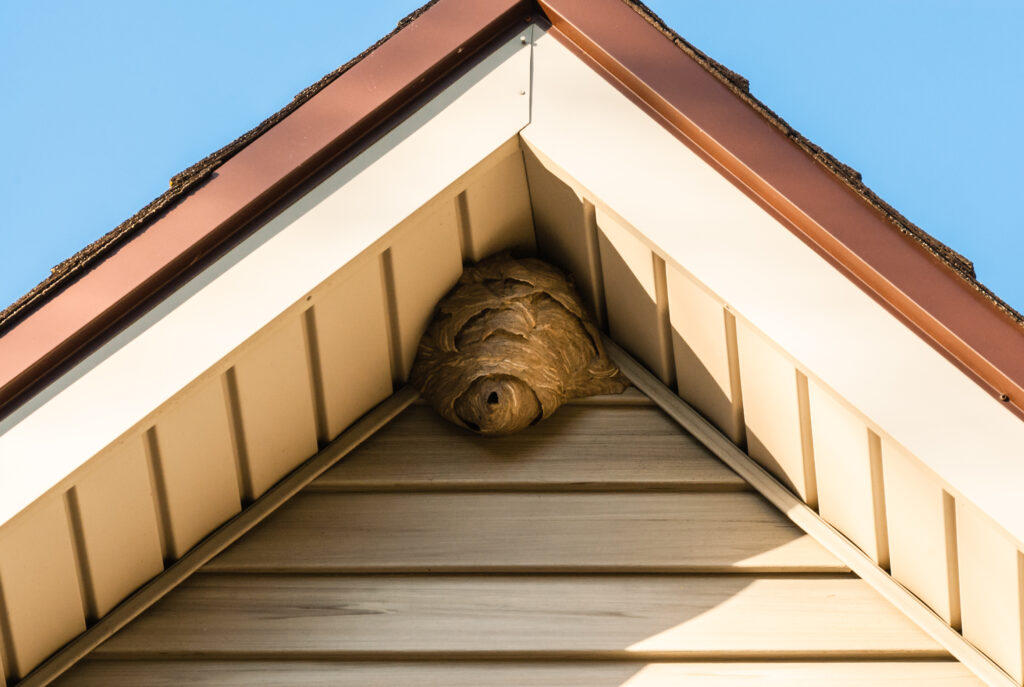This is no surprise.
Wasps living in roof.
Then it s often the fact that gutters high above the ground offer a relatively safe perch.
The hole will likely be a utility penetration or an area where siding may not fit properly.
This is the most common ways that encourage them to get to your house.
They see wasps more specifically yellow jackets entering and exiting from a hole around the exterior perimeter of their home.
Removing entry points.
Alternatively simply walk around the property checking all those snug out of the way hiding places that wasps are known to haunt roof eaves and rafters wall cavities crawlspaces railings.
Wasps such as paper wasps and yellowjackets commonly nest in attics and in wall voids inside the home.
How to get rid of the wasp nests.
As explained in our wasp control article they like sheltered spaces and voids for nest building so the sides of homes up under soffits and roof lines are perfect locations for them to live.
Wasps cause problems when they build nests in or around your home.
As with beehives that are similarly hidden from view there are several ways to determine whether wasps have set up home beneath your sidings.
Do wasps damage roofs.
Wasps are one of the most common insects that will try to nest in your house most specifically on your roof.
But there are many homeowners who never see them during the summer and then in the fall they start to appear.
Under the eaves of the roof is a popular nesting spot for several types of wasps including paper.
For that reason wasps.
The second photo above shows just how far you can spray with these wasp sprays here is something interesting that i learned while researching.
If you have a nest in your roof and want to know how you can destroy the wasps nest as soon as possible take a look at this onehowto article and discover how to get rid of a wasps nest in a roof.
Check your loft for any gaps or holes in the roof where wasps may get in through.
5 pests that may be living in your gutters and what you can do about it.
They will defend their territory and get aggressive if you get too close to a nest or try to disturb them.
The easiest and safest way is to locate and monitor the wasps suspected access point into the siding during the late afternoon.
Make sure to wear protective clothing and goggles both for the overspray if the wind moves aginst you and for some angry wasps.
Finally you should keep sweet smelling plants which may attract wasps far from your house.
Wasps resemble bees but are actually different insects.
If you live near the countryside or a park it s very common for you to have different insects around your house.

